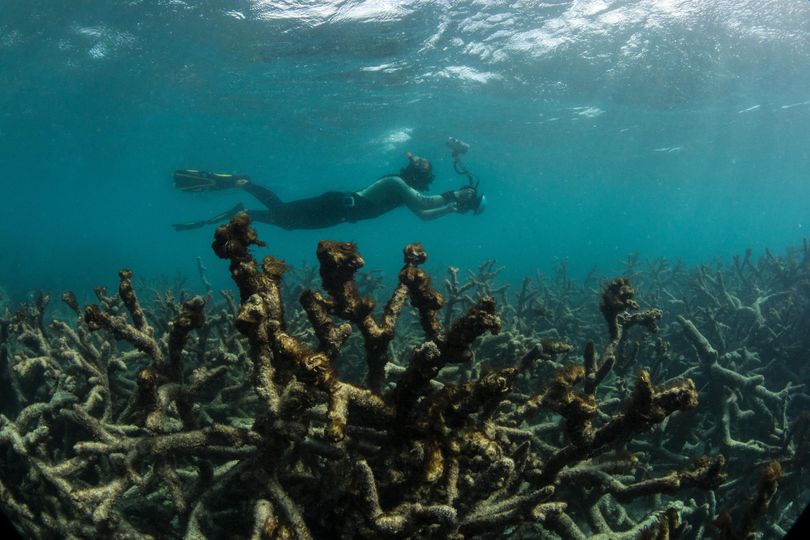Great Barrier Reef obit maybe not so premature

ENVIRONMENT -- I took a lot of grief and criticism in October from around the world, perhaps not totally undeserved, for promoting an obituary for the Great Barrier Reef.
This week, the science journal Nature and The New York Times are suggesting the notion isn't so silly, as the lead to Wednesday's story indicates:
The Great Barrier Reef in Australia has long been one of the world’s most magnificent natural wonders, so enormous it can be seen from space, so beautiful it can move visitors to tears.
But the reef, and the profusion of sea creatures living near it, are in profound trouble.
Huge sections of the Great Barrier Reef, stretching across hundreds of miles of its most pristine northern sector, were recently found to be dead, killed last year by overheated seawater. More southerly sections around the middle of the reef that barely escaped then are bleaching now, a potential precursor to another die-off that could rob some of the reef’s most visited areas of color and life.
“We didn’t expect to see this level of destruction to the Great Barrier Reef for another 30 years,” said Terry P. Hughes, director of a government-funded center for coral reef studies at James Cook University in Australia and the lead author of a paper on the reef that is being published Thursday as the cover article of the journal Nature. “In the north, I saw hundreds of reefs — literally two-thirds of the reefs were dying and are now dead.”
